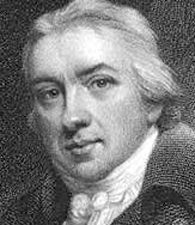An English physician who spent his early years studying fossils and birds, Edward Jenner discovered a vaccination for smallpox disease in 1796. His experiments paved the way for the modern science of immunology. Researchers continue to follow in Jenner’s footsteps, working to develop cures for problems such as arthritis and AIDS.
Edward Jenner’s Early Days
Born in Berkeley, Gloucestershire, England, on May 17, 1749, Edward Jenner grew up intensely fascinated by biology. He spent his early years collecting fossils and studying the nesting habits of cuckoos.
According to the Jenner Museum, at the age of 14, he began a seven-year apprenticeship under Dr. Daniel Ludlow to become a surgeon. Jenner moved to London to finish his medical training under John Hunter, who became a lifelong friend, and in 1772, he returned to Berkeley to work as a surgeon and general practitioner.
Meanwhile, smallpox, which Mayo Clinic explains is a contagious and often deadly disease, ran rampant throughout Europe. Victims initially experienced flu-like symptoms, such as fever and vomiting, before breaking out in a rash of pus-filled blisters that left behind deep scars. Jenner turned his attention to studying this disease during the last two decades of the 18th century.
Sources in this Story
- Dr Jenner’s House Museum and Garden: The Young Edward Jenner
- Mayo Clinic: Smallpox
- Modern History Sourcebook: Edward Jenner (1749-1823)
- BBC: Historic Figures – Edward Jenner (1749-1823)
- PBS: World Health Organization declares smallpox eradicated
- National Library of Medicine/Baylor University Medical Center Proceedings: Edward Jenner and the history of smallpox and vaccination
Notable Accomplishments
The Modern History Sourcebook describes that while living in the English countryside, Jenner kept detailed observations of cases of smallpox and cowpox, a similar, but not fatal disease. He noticed that milkmaids, frequently exposed to cowpox from milking animals, were immune to smallpox.
In his famous 1796 experiment, Jenner infected 8-year-old James Phipps with cowpox. Six weeks later, according to the BBC, when Jenner exposed Phipps to smallpox, the boy was immune, proving that inoculation with cowpox could provide resistance against the fatal disease.
The Royal Society deemed Jenner’s experiment “too revolutionary” and lacking in proof, but by repeating the experiment on more children, including his own son, Jenner was able to publish his findings in 1798. In his paper, he coined the term vaccine after the Latin word for cow (vacca).
The Man and His Work
- “Vaccination Against Smallpox,” by Edward Jenner
- “The Man Who Saved The World From Smallpox: Doctor Edward Jenner,” by George F. Smith
- “The Eradication of Small Pox: Edward Jenner and The First and Only Eradication of a Human Infectious Disease.” by Herve Bazin
The Rest of the Story
Jenner, suddenly famous for his discovery, spent the next several years fielding questions about the treatment and calling himself “the Vaccine Clerk to the World,” according to Dr. Jenner’s House Museum and Garden. After his wife, Catherine, died in 1815, Jenner resorted to his earlier hobbies of collecting fossils and gardening.
On the morning of January 25, 1823, he was found lying unconscious in his library. Jenner had suffered a stroke and died the following morning at the age of 73. He was buried alongside his family in Berkeley Church. His home has since been transformed into a museum and tribute to the physician’s life and work.
Although Jenner’s research initiated the spread of smallpox treatment across Europe and North America, it did not completely wipe out the disease for another 180 years. According to PBS, The World Health Organization finally declared smallpox eradicated in 1980.
Stefan Riedel, MD, writing in Baylor University Medical Center Proceedings in 2005, said “Jenner’s work represented the first scientific attempt to control and infectious disease by deliberate use of vaccination.” Though other British physicians were familiar with the link between cowpox and smallpox, and another physician, Benjamin Jesty, even vaccinated his wife and two sons with material from cattle infected with smallpox in 1774, Dr. Reidel said it was Jenner’s “relentless promotion and devoted research of vaccination that changed the way medicine was practiced.”
This article was originally written by Erin Harris; it was updated April 26, 2017.











